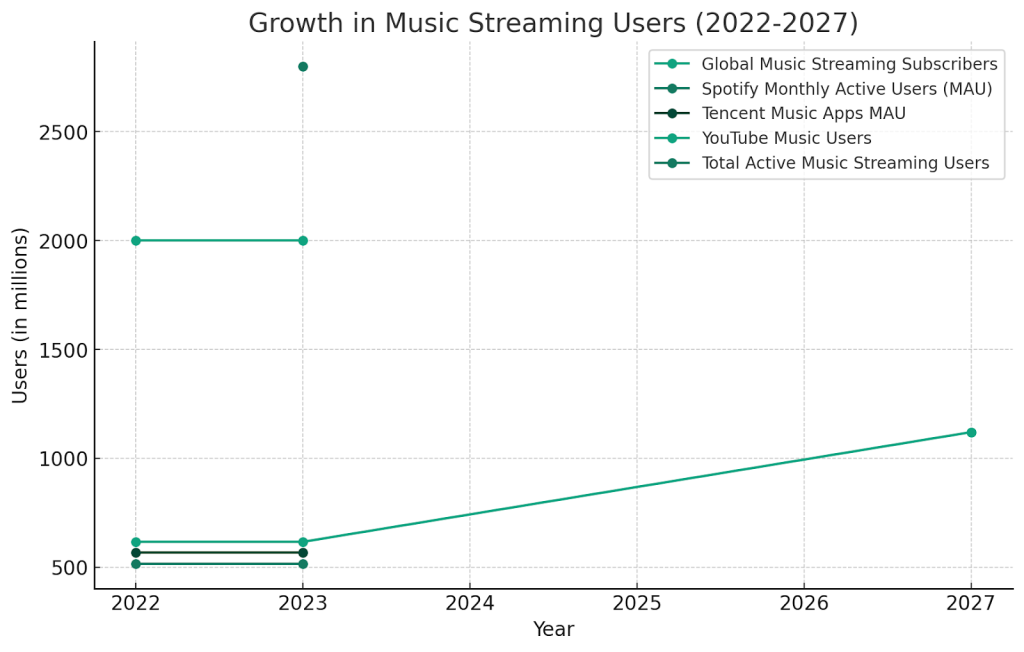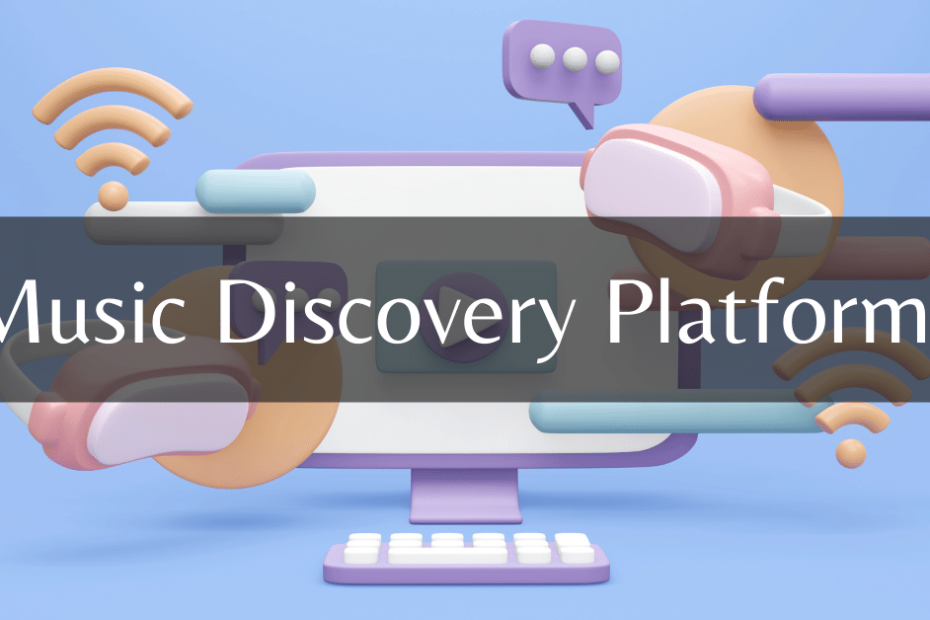Music discovery has undergone a remarkable transformation over the years, evolving from the era of vinyl records and radio broadcasts to today’s digital age. This journey reflects not just changes in technology but also shifts in how we interact with and enjoy music. In this article, we delve into this evolution, examining how technology has revolutionized music accessibility and shaped our listening experiences.The advent of the internet and digital technologies has been pivotal in changing the music landscape. With these advancements, accessing music has become more convenient, efficient, and personalized. We have moved from owning physical copies of music to streaming songs on-demand, thanks to the proliferation of digital music platforms. This shift has not only made a vast array of music readily available but also transformed the way artists distribute their work and connect with audiences.Our focus will be on modern music discovery platforms – their development, how they benefit users, the challenges they face, and what the future may hold. We aim to provide a comprehensive understanding of these platforms, emphasizing the importance of technology in shaping our current and future music experiences.
The Evolution of Music Discovery
From Radio to Streaming: A Historical Perspective
The history of music discovery is a fascinating tale of innovation and adaptation. Initially, radio was the primary medium for new music exposure, with DJs playing a crucial role in influencing music trends. The introduction of MTV in the 1980s further revolutionized music consumption, making music videos a vital part of the industry. However, the true game-changer came with the internet era, particularly with the advent of music streaming services. These platforms have democratized music consumption, allowing users to explore a diverse range of genres and artists from all over the world with just a few clicks.
The Role of Social Media in Shaping Music Trends
Social media has become a powerful tool in the music industry, influencing what songs become hits. Platforms like YouTube, Twitter, and TikTok have given rise to viral music trends, enabling even independent artists to reach global audiences. Social media’s ability to connect artists directly with fans has reshaped the landscape of music promotion and discovery, making it a dynamic and interactive experience.
How Music Discovery Platforms Work: A Technical Insight
Understanding Algorithms and Personalized Recommendations
At the heart of modern music discovery platforms are sophisticated algorithms that personalize user experience. These algorithms analyze a plethora of data points, such as listening history, user preferences, and even the time of day, to suggest music that resonates with individual tastes. This personalization has revolutionized music discovery, making it a unique and tailored experience for each user.
Integration of Artificial Intelligence and Machine Learning
Artificial Intelligence (AI) and Machine Learning (ML) play a crucial role in refining these recommendation systems. By employing AI and ML, platforms can predict and adapt to user preferences with remarkable accuracy. This integration not only enhances user experience but also opens new avenues for artists to connect with potential fans who are likely to appreciate their music.
Market Trends and User Behavior

A Graphical Exploration of Music Streaming Growth
The music streaming industry has witnessed a remarkable surge in recent years. In 2021, the industry’s revenue skyrocketed to $25.1 billion, a significant 32% increase from the previous year. This financial growth coincides with an expanding user base, which reached approximately 616.2 million subscribers globally in the second quarter of 2022. Looking further ahead, a projected growth rate suggests an escalation to 1.12 billion subscribers by 2027, indicating a thriving market with a Compound Annual Growth Rate (CAGR) of 10.6%.
Platform-Specific Trends
When delving into specific platforms, Spotify’s Monthly Active Users (MAU) grew by 22% in the first quarter of 2023, reaching 515 million. Tencent Music apps reported 567 million MAU by the end of 2022. YouTube, a major player in the industry, boasted over two billion music users as of 2020. Moreover, the total active user base across platforms like YouTube, Spotify, Apple Music, Tencent Music, and Amazon Music was predicted to exceed 2.8 billion in 2023.
Top 5 Music Discovery Platforms and What Sets Them Apart
In the dynamic world of music streaming and discovery, several platforms have risen to prominence. Each offers unique features and experiences that cater to diverse listener preferences. Here’s a closer look at the top five music discovery platforms as of my last update in April 2023, highlighting what sets each apart.
1. Spotify: The Personalized Music Pioneer
- Features: Spotify is renowned for its powerful algorithmic recommendations and personalized playlists like “Discover Weekly” and “Daily Mix.”
- User Interface: Known for its user-friendly interface, it offers easy navigation and seamless integration across devices.
- Unique Selling Point: Spotify excels in music discovery through its vast library and data-driven personalization, making it a favorite for users seeking new music tailored to their tastes.
2. Apple Music: The Integrated Music Experience
- Features: Apple Music offers a vast library with integration into the broader Apple ecosystem, including Siri for voice commands.
- User Interface: It provides a clean and intuitive interface, particularly for users of Apple devices.
- Unique Selling Point: Its integration with Apple’s ecosystem and high-quality curated playlists make it a top choice for Apple device users.
3. Tidal: High-Quality Streaming for Audiophiles
- Features: Tidal stands out with its high-fidelity sound quality and exclusive content from top artists.
- User Interface: The platform offers a sleek interface with a focus on showcasing high-quality audio content.
- Unique Selling Point: Its lossless audio quality and exclusive releases appeal to audiophiles and users seeking premium sound experiences.
4. Pandora: The Radio-Reinvented Platform
- Features: Pandora is best known for its radio-like experience with personalized stations based on artists or songs.
- User Interface: The platform offers a simple and easy-to-use interface, focusing on personalized radio stations.
- Unique Selling Point: Pandora’s Music Genome Project offers unique personalization, making it ideal for users who prefer a more radio-style listening experience with new music discovery.
5. Amazon Music: The Versatile Streamer
- Features: Amazon Music integrates well with Amazon Prime and Echo devices, offering a wide range of songs and playlists.
- User Interface: It has a straightforward interface that integrates seamlessly with other Amazon services.
- Unique Selling Point: Amazon Music’s integration with Alexa and the wider Amazon ecosystem makes it a convenient choice for Amazon Prime users and those with Echo devices.
Each of these platforms has carved out its niche in the music streaming industry, offering unique experiences tailored to different user needs and preferences. Whether it’s high-quality audio, algorithm-driven personalization, or ecosystem integration, these platforms continue to shape the way we discover and enjoy music.
The Future of Music Discovery
Insights from Industry Experts
The future of music discovery is a topic of great interest among industry experts. These professionals foresee a continued evolution driven by emerging trends and technologies. They predict that AI and machine learning will play even larger roles in personalizing user experiences, while virtual reality (VR) and augmented reality (AR) could transform how we experience music.
Emerging Trends and Predictions
One emerging trend is the integration of music discovery into everyday devices and activities. Smart home devices, wearable technology, and even automotive systems are increasingly becoming mediums for music consumption. Additionally, the role of data analytics in understanding user preferences is expected to become more sophisticated, leading to even more personalized and engaging music discovery experiences.
Preparing for the Next Big Leap
The consensus among experts is clear: the future of music discovery will be more personalized, more integrated into our daily lives, and more technologically advanced. As we stand at this juncture, it’s exciting to contemplate what the next big innovation in music discovery will be, and how it will further reshape our musical landscapes.
How to Find Your Next Favorite Song
In the vast world of music streaming, finding your next favorite song can seem daunting. However, with the right tools and approaches, this process can be both enjoyable and rewarding. Here’s a step-by-step guide to effectively utilizing music discovery tools:
Step 1: Choose the Right Platform
First, select a music discovery platform that aligns with your preferences. Whether it’s Spotify for its personalized playlists, Apple Music for its integration into the Apple ecosystem, or Tidal for high-fidelity sound, each platform has unique features. Consider what matters most to you – sound quality, user interface, or the extent of the music library.
Step 2: Explore Curated Playlists
Most platforms offer curated playlists based on genres, moods, or activities. These are great starting points for discovering new music. Pay attention to playlists that are updated regularly, as they often feature emerging artists and fresh tracks.
Step 3: Use Personalized Features
Take advantage of personalized features like Spotify’s “Discover Weekly” or Pandora’s Music Genome Project. These algorithms suggest music based on your listening history, helping you uncover songs that match your taste.
Step 4: Dive Into Related Artists
If you find an artist you like, explore the “related artists” section. This feature, available on most platforms, suggests artists with similar styles or genres, expanding your musical horizon.
Step 5: Experiment and Be Open-Minded
Finally, be open to experimenting with different genres and artists. Sometimes, stepping out of your musical comfort zone can lead to exciting discoveries.
Some FAQs Answered On The Relevant Topic
How Do Music Discovery Platforms Personalize Recommendations?
Music discovery platforms use algorithms that analyze your listening habits, including the genres you prefer, the artists you listen to frequently, and how you interact with different songs. This data helps the platform suggest songs tailored to your taste.
Can I Discover New Music Based on My Current Mood?
Yes, many platforms offer mood-based playlists. For instance, Spotify has playlists for different moods and activities, allowing you to find music that fits your current state of mind.
Are There Platforms Specifically for Discovering Independent or Lesser-Known Artists?
Platforms like Bandcamp and SoundCloud are known for their focus on independent and emerging artists. They offer a platform for lesser-known musicians to showcase their work, making them ideal for listeners seeking new and unique sounds.
How Can I Keep Track of New Releases from My Favorite Artists?
Most music streaming services have features that notify you about new releases from artists you follow. Additionally, some platforms have sections dedicated to new releases and trending music.
In conclusion, the new era of music discovery platforms has profoundly transformed our relationship with music. They have democratized access to a diverse range of music, breaking down geographical and genre barriers. With personalized recommendations, mood-based playlists, and features that connect listeners with new and emerging artists, these platforms have made discovering your next favorite song an exciting and seamless journey. As we continue to embrace these technological advancements, the future of music discovery looks bright, promising a more connected and personalized experience for music lovers worldwide.

Eric Dalius is The Executive Chairman of MuzicSwipe, a music and content discovery platform designed to maximize artist discovery and optimize fan relationships. In addition, he hosts the weekly podcast “FULLSPEED,” where he interviews innovative entrepreneurs across multiple industries. Eric also established the “Eric Dalius Foundation” to provide four scholarships for US-based students. Connect with him on Twitter, Facebook, LinkedIn, Instagram, and Entrepreneur.com.
